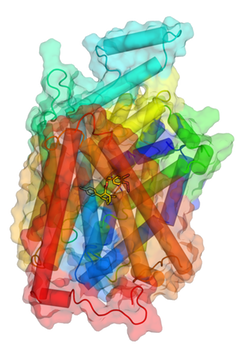L. Keith Henry Lab
Overview of Research Interests

In my lab, we use of pharmacology, biochemistry, computational, epigenetic and evolutionary methods to understand the physiological role of the serotonin (SERT) and dopamine (DAT) transporters and their role in human health and disease. The scope of our studies spans from molecules to whole organisms.
SERT and DAT are inhibited by compounds such as antidepressants and drugs of abuse such as cocaine, amphetamine and ecstasy. We are studying how these clinically important drugs and other atypical drugs interact with the transporters at the molecular level. This work has the potential to lead to real advances in novel drug development and pharmacological interventions.
Autism and SERT
Single nucleotide polymorphisms in human SERT have been shown to elevate transport function and have been linked to behavioral aspects of Autism Spectrum Disorder. We are working to uncover the molecular mechanisms behind the effects of these mutations.
Epigenetic Programming by Antidepressants
In addition to being a neurotransmitter, serotonin is a important molecule in animal development. As such, we are interested in that possibility that antidepressants can have epigenetic implications on anxiety, depression and other mood disorders.